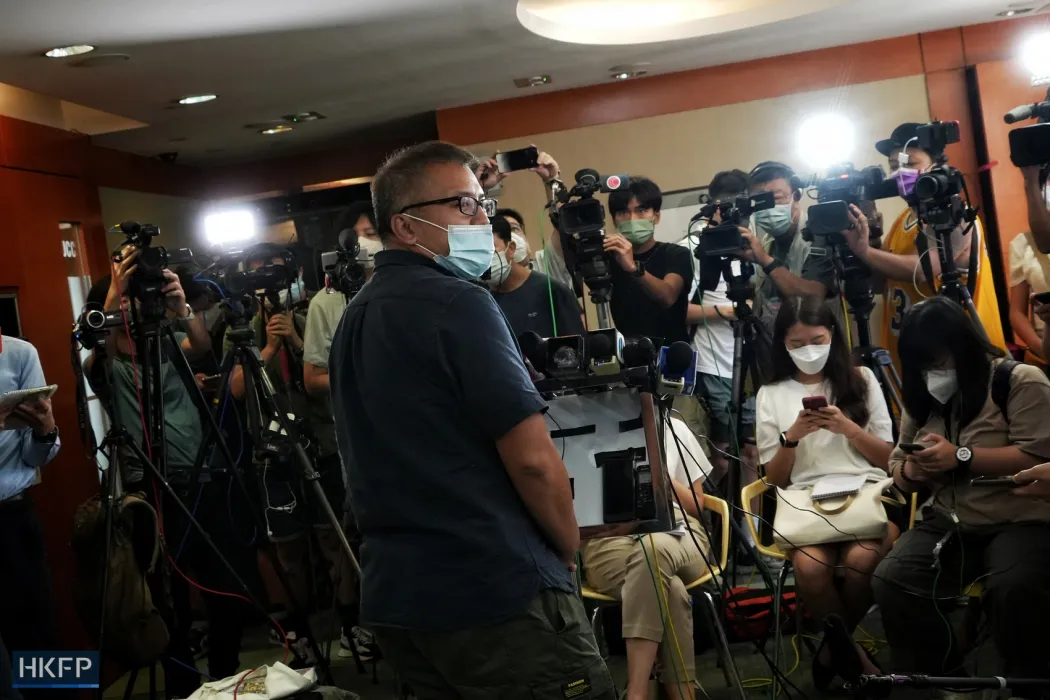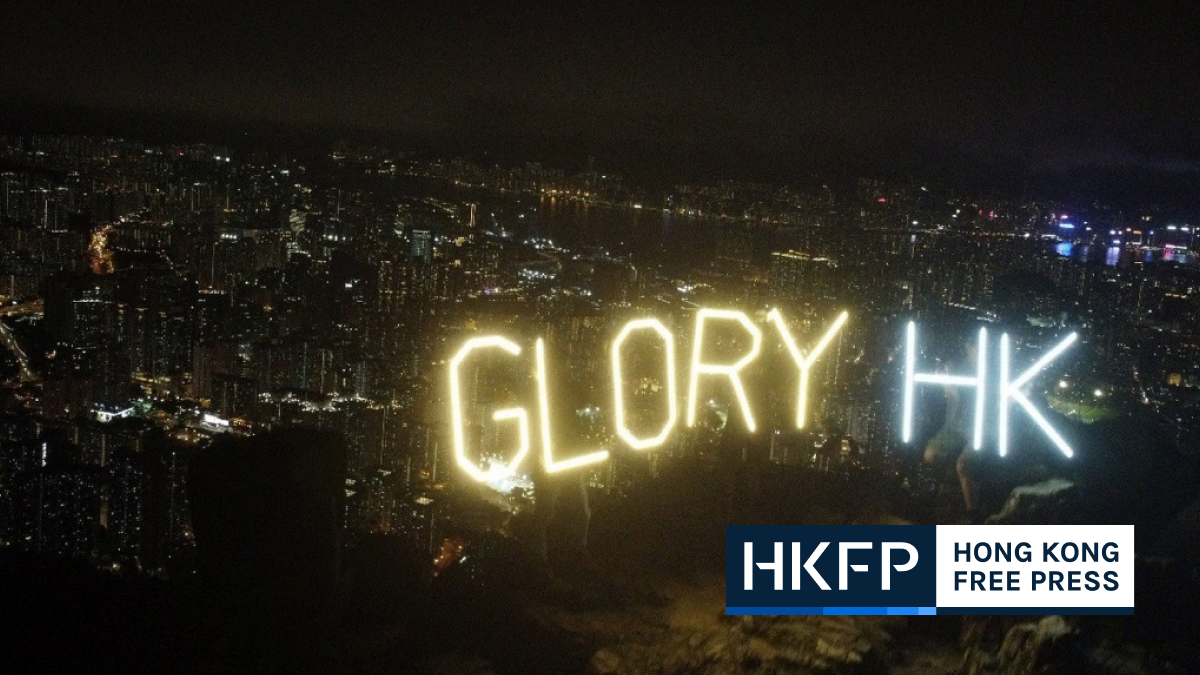An international journalists’ group has urged the global community to continue its condemnation on the “media offensive” conducted by the Hong Kong government in a report about the city’s press freedom published last week.
The Hong Kong Freedom of Expression Report 2022, previously compiled by the city’s largest press group – the Hong Kong Journalists Association (HKJA) – was released by the International Federation of Journalists (IFJ) last Friday.

Titled “The Story that Won’t Be Silenced,” the report detailed the number of media outlets which closed down over the last two years, as well as journalists and companies that faced prosecution.
Among the media outlets that were raided and shuttered were Apple Daily and Stand News. The two outlets – and some of their former employees – were charged under the national security law or the colonial-era sedition law last year, with the trials scheduled to begin soon.
Outlets Citizen News and Factwire also shut down shortly after the newsroom raids.
In all, the IFJ cited the Beijing-imposed national security law as the direct or indirect reason behind the closures of at least 12 news outlets, adding that the number was “unprecedented in the history of Hong Kong.”

The IFJ also listed new organisations formed across the world following the arrests and disbandment of older outlets.
“The geographical distribution of the new dissenting services gives hope that the resistance underlying the Hong Kong identity can survive the ongoing large-scale outward migration from the territory,” the report read.
Humanitarian visas and condemnation
Among the list of recommendations included at the end of the report, IFJ called on other governments to support journalists hoping the leave the city by issuing “humanitarian visas or special visa programs for those needing to flee to secure their immediate safety.”
“The international community must continue to condemn the media offensive conducted by the governments of China and Hong Kong that began under the cloak of the Covid-19 pandemic, supported by the introduction of the National Security Law and abuse of existing laws on crimes such as sedition to intimidate independent media into shutting down,” the group urged.
In June 2020, Beijing inserted national security legislation directly into Hong Kong’s mini-constitution – bypassing the local legislature – following a year of pro-democracy protests and unrest. It criminalised subversion, secession, collusion with foreign forces and terrorist acts, which were broadly defined to include disruption to transport and other infrastructure. The move gave police sweeping new powers, alarming democrats, civil society groups and trade partners, as such laws have been used broadly to silence and punish dissidents in China. However, the authorities say it has restored stability and peace to the city.
Previous HKJA reports deleted
Meanwhile, past years’ reports previously available on HKJA’s website have been removed.
A HKJA spokesperson told HKFP that the group had stopped writing the annual report at the beginning of this year, and had taken the annual reports over the past years out of view “because of political pressure.”

“HKJA thanks other organisations like the IFJ that care about Hong Kong’s press freedom,” the spokesperson said, adding that the group did not know about nor did they take part in the report published by IFJ.
See also: The decline of Hong Kong’s press freedom under the security law
The HKJA has faced increasing pressure from authorities since the enactment of the national security law, with the Registry of Trade Unions asking the group to justify its activities first in January this year. The group later voted in June to lower the threshold for disbandment.
In April, John Lee – who, weeks later, became the city’s later, said that press freedom exists in the city, so there is no need to ask him to “defend” it.
Press freedom plummets
Public trust in the credibility of Hong Kong’s media has fallen to its lowest level in two decades, according to a survey by the Chinese University of Hong Kong published in August.
Weeks later, the HKJA’s press freedom index sank to a new low for the third consecutive year, with reporters questioning the media’s effectiveness as a watchdog amid an increasingly challenging environment for the industry.
Meanwhile, this year’s Reporters Without Borders press freedom index saw the city plunge 68 places to 148th in the world, sandwiching the international business hub between the Philippines and Turkey. It says 13 Hong Kong media workers remain behind bars.
Support HKFP | Policies & Ethics | Error/typo? | Contact Us | Newsletter | Transparency & Annual Report | Apps
Help safeguard press freedom & keep HKFP free for all readers by supporting our team
























